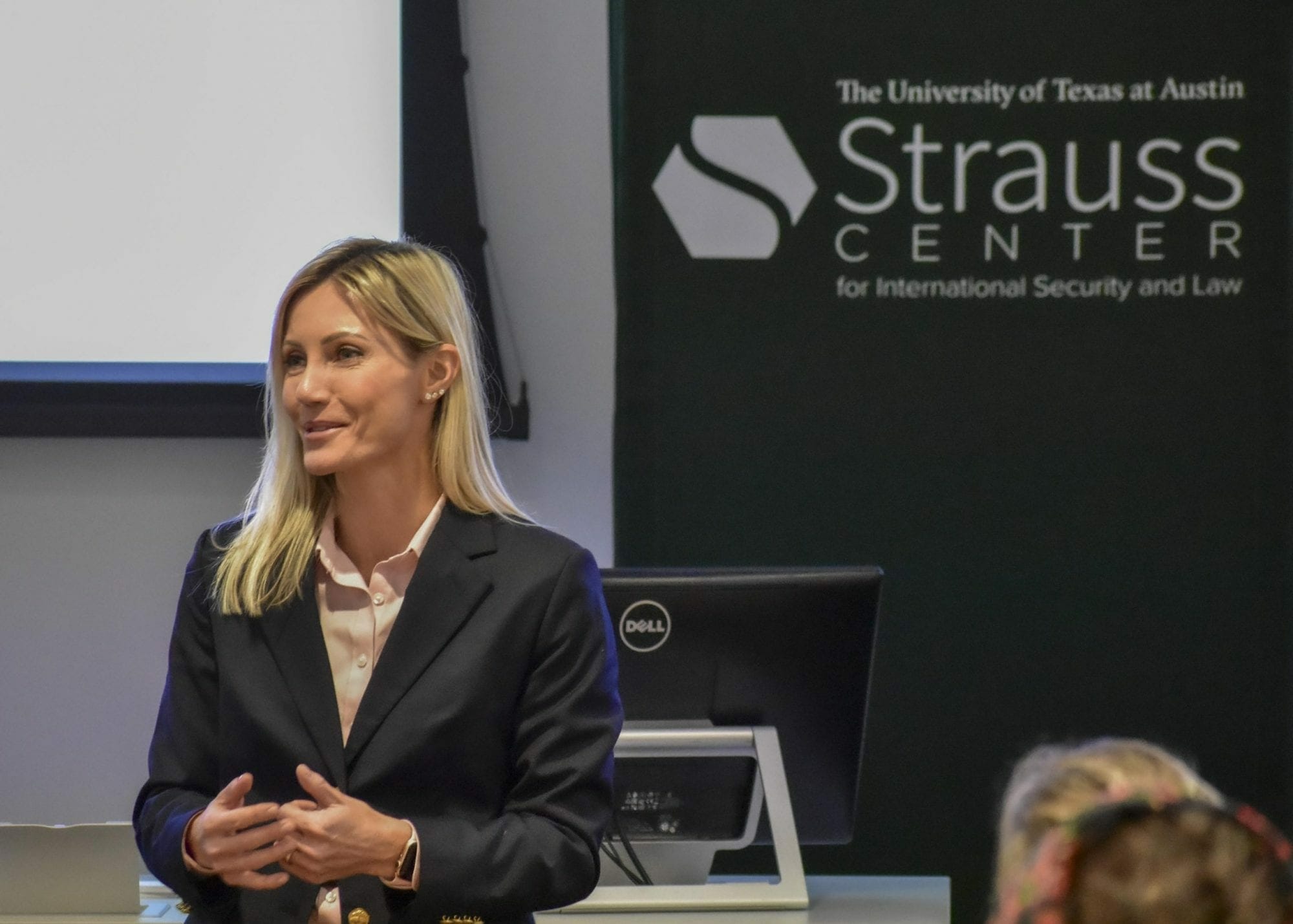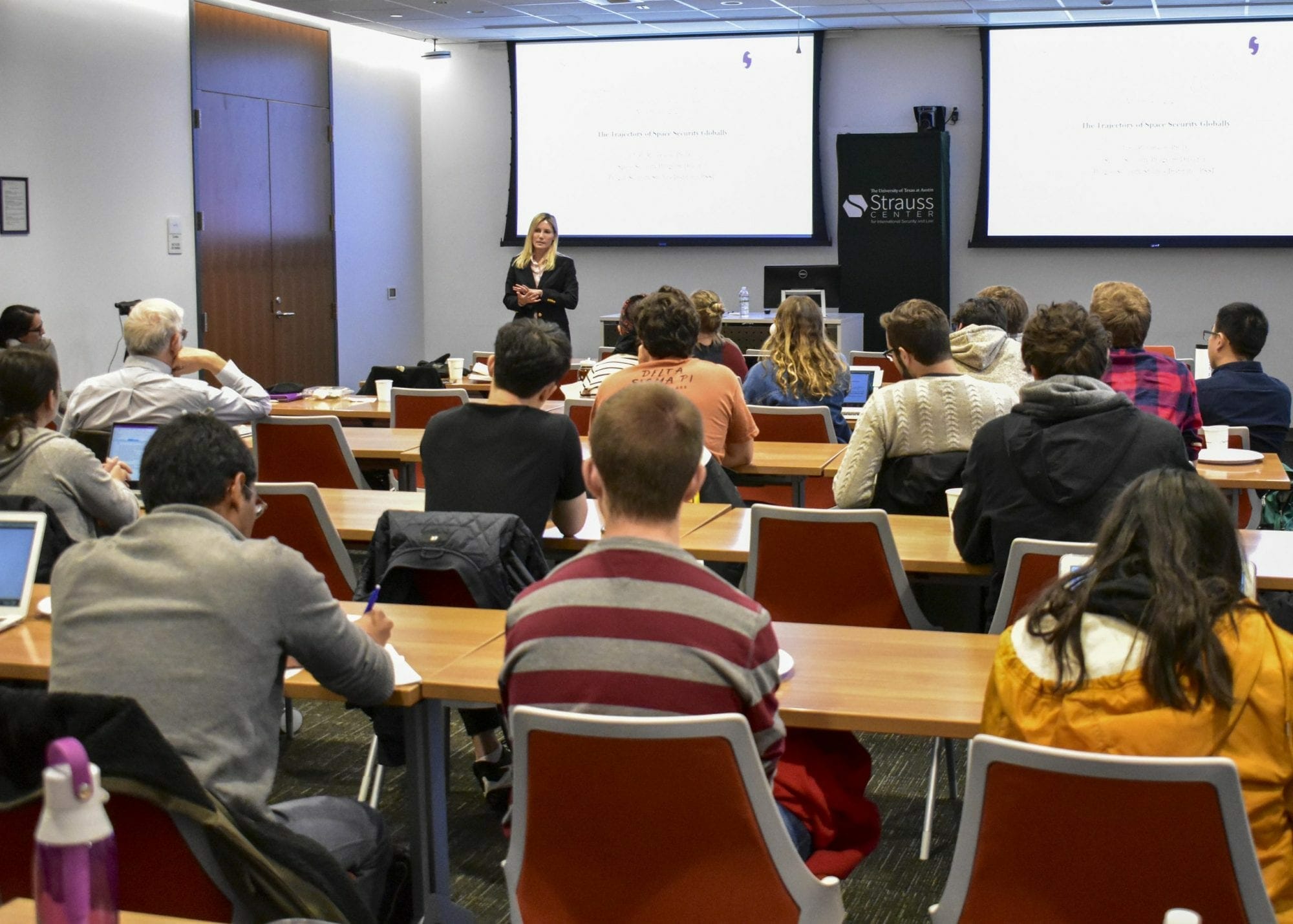By Program

The Trajectory of Space Security Globally
November 12, 2019 | 12:15pm | Engineering Education and Research Center, EER 3.646

On Tuesday, November 12, 2019, the Strauss Center was delighted to host Dr. Jana Robinson of the Prague Security Studies Institute (PSSI). Her talk, entitled “The Trajectory of Space Security Globally,” discussed current and potential future threats for space security, with an emphasis on economic and financial operations as a strategic threat. This talk was part of the Strauss Center’s Brumley Speaker Series.
Photos from this event can be found here. A video of this presentation can be found here.

States seek geostrategic influence through their political ideology, hard and soft power-projection capabilities, economic prowess and technological advances. Space plays a vital role in these power projection capabilities. With new actors, technologies, and greater dependence on space-derived services than ever before, the trajectory of space security in the 21st century cannot be merely an extrapolation of the Cold War experience. It needs to take into account a fluid and hybrid new geopolitical environment shaped by the U.S., China and Russia rivalries and that includes the vast cyber threat and the global competition for international space partnerships. Dr. Robinson’s lecture provided an overview of today’s space security landscape and described the global counterspace dynamic. It discussed attribution and other challenges related to deliberately murky space hybrid operations. Finally, it delineated how these and related issues can be best addressed by the evolving space governance regime and strengthening of our economic and financial (E&F) means to counter ‘bad actor’ behavior in this domain.

During the presentation, Dr. Robinson presented some of the PSSI’s research on hybrid operations in space. This concept is used to describe a ‘gray zone’ of space security in which technology and initiatives can have dual purposes. In these hybrid operations, one purpose is globally acceptable, while another un-stated purpose might trigger military responses. One of the hybrid operations discussed was the concept of “space sector capture.” Space sector capture has been studied in relation to China and Russia providing completely subsidized financing, satellites, and launch services for non-space fairing countries. In a study involving 216 transactions in 88 countries the PSSI and Dr. Robinson concluded that these economic dependencies create a material risk for the countries accepting the “partnerships” from either China or Russia. While it is not clear what a good path forward is, it is clear that there is a lack of space governance and understanding of the global situation when it comes to these economic transactions.
Dr. Robinson concluded her talk with a discussion on where we are with space governance and what challenges are ahead. In terms of governance, she stated that there are seemingly conflicting strategies coming from the space dominating countries of Russia and China, and no current path forward. She also pointed out that the “existing space reality makes it virtually impossible to use traditional arms control,” because the technology has dual uses, and it is the use of them that can have either positive or negative results. In summary, she stated that we are to be guided by the current United Nations treaties, but are in need of understanding and addressing the changing space paradigm to deal with the ever-increasing amount of space fairing countries and the complex arms race in space.


